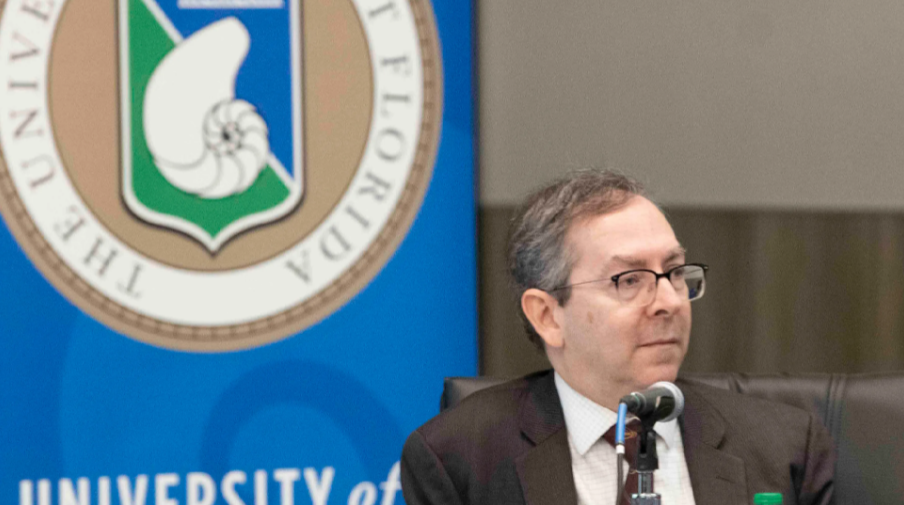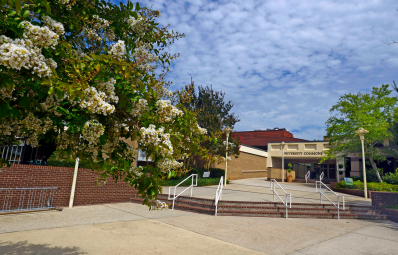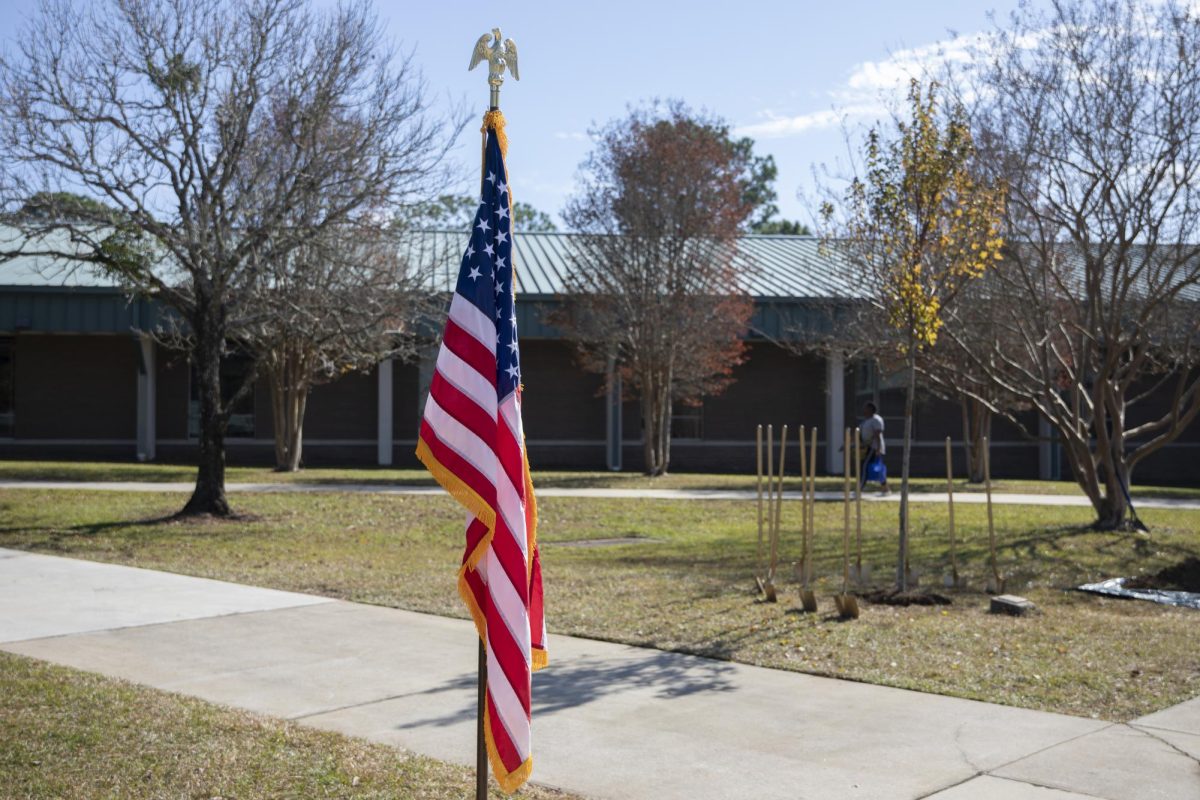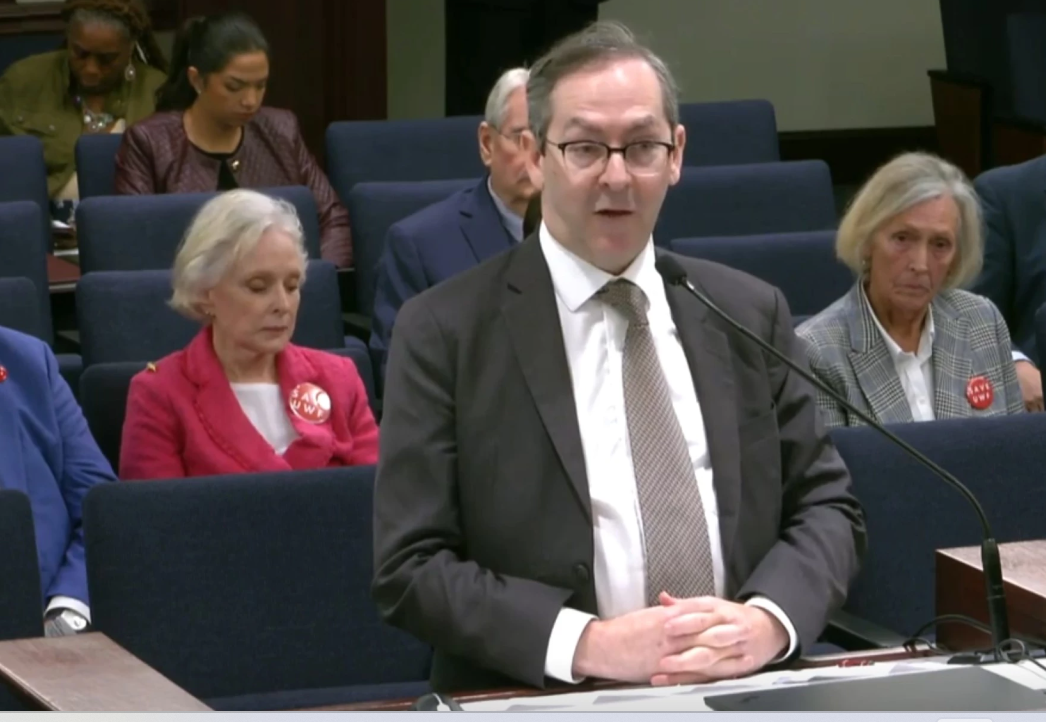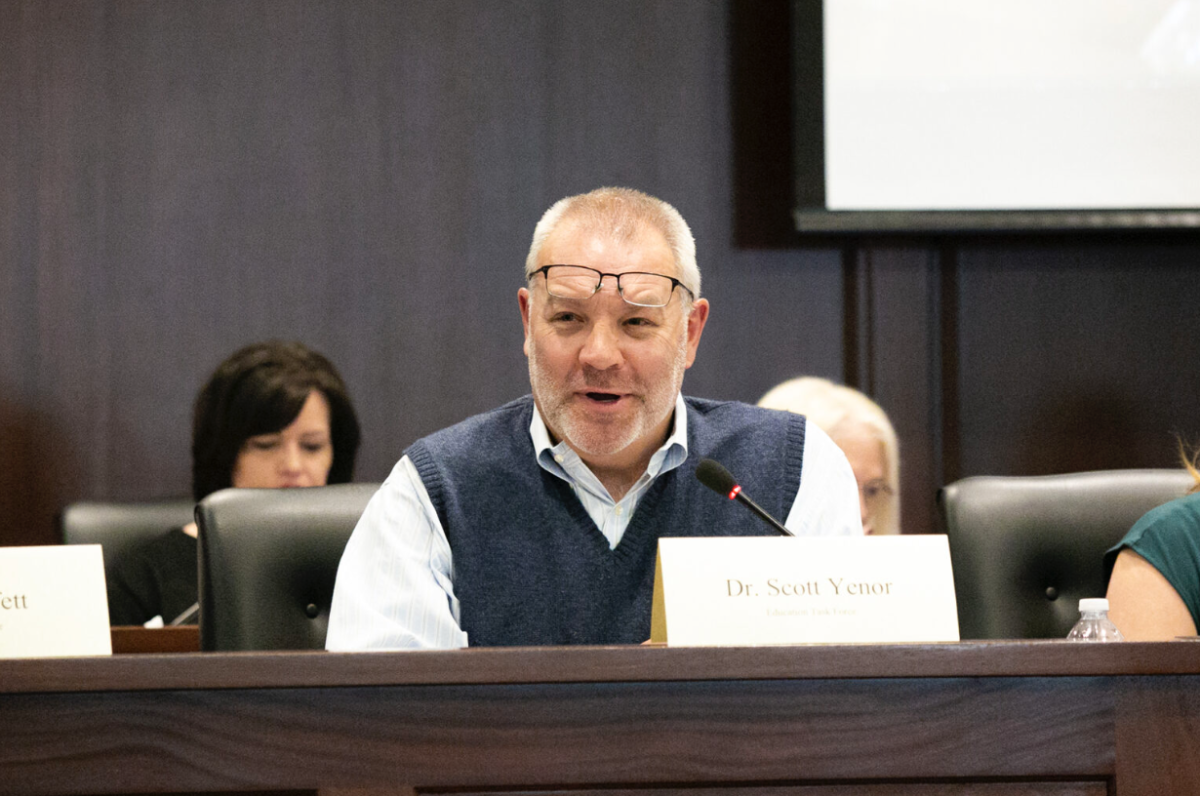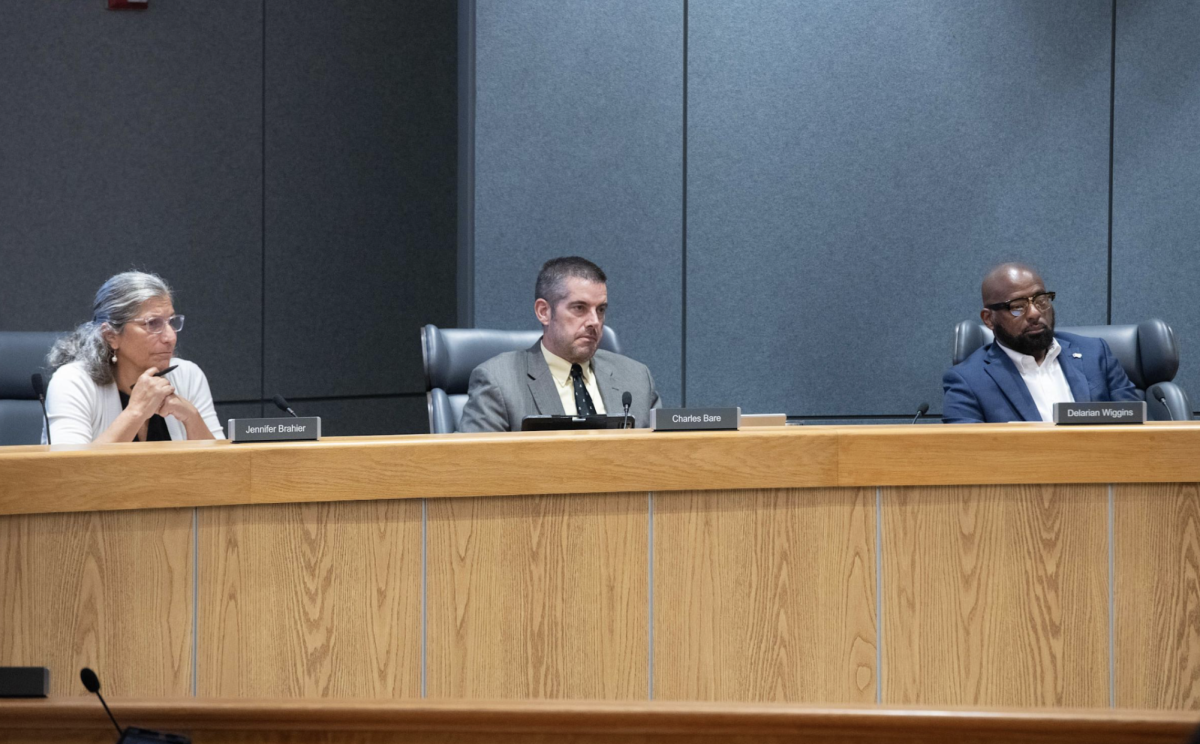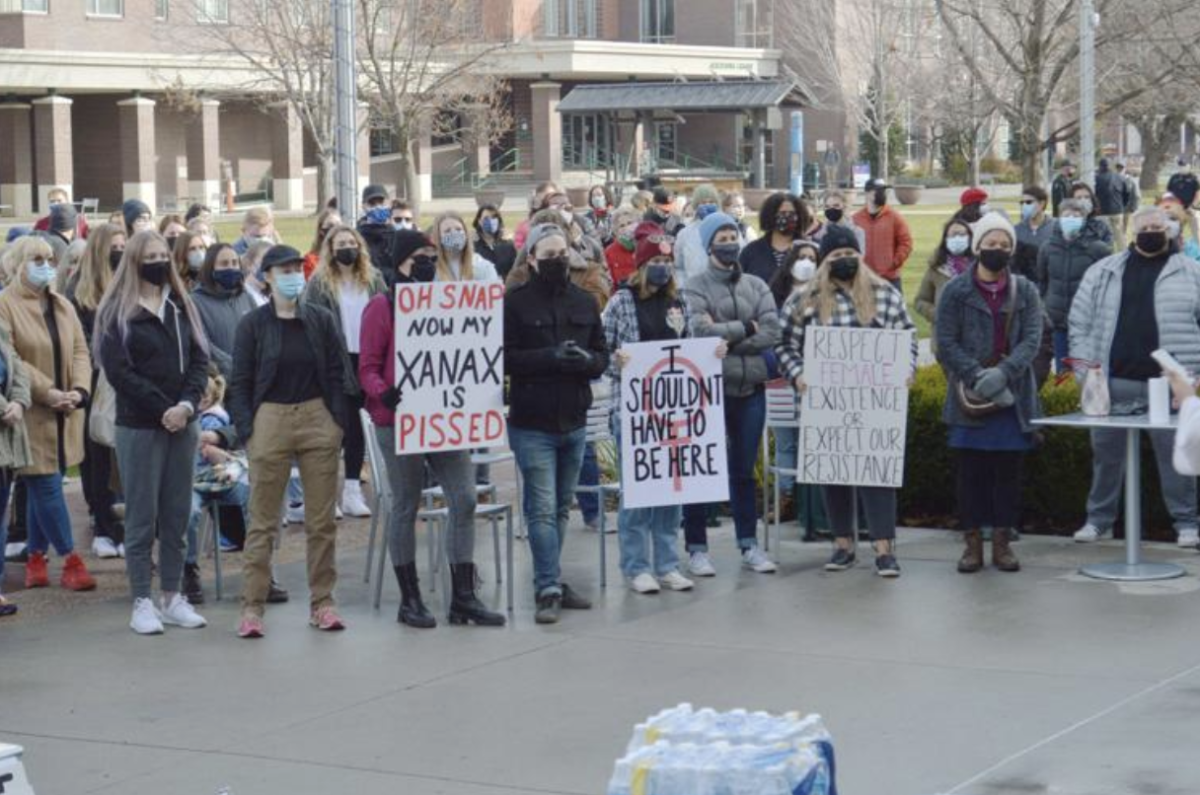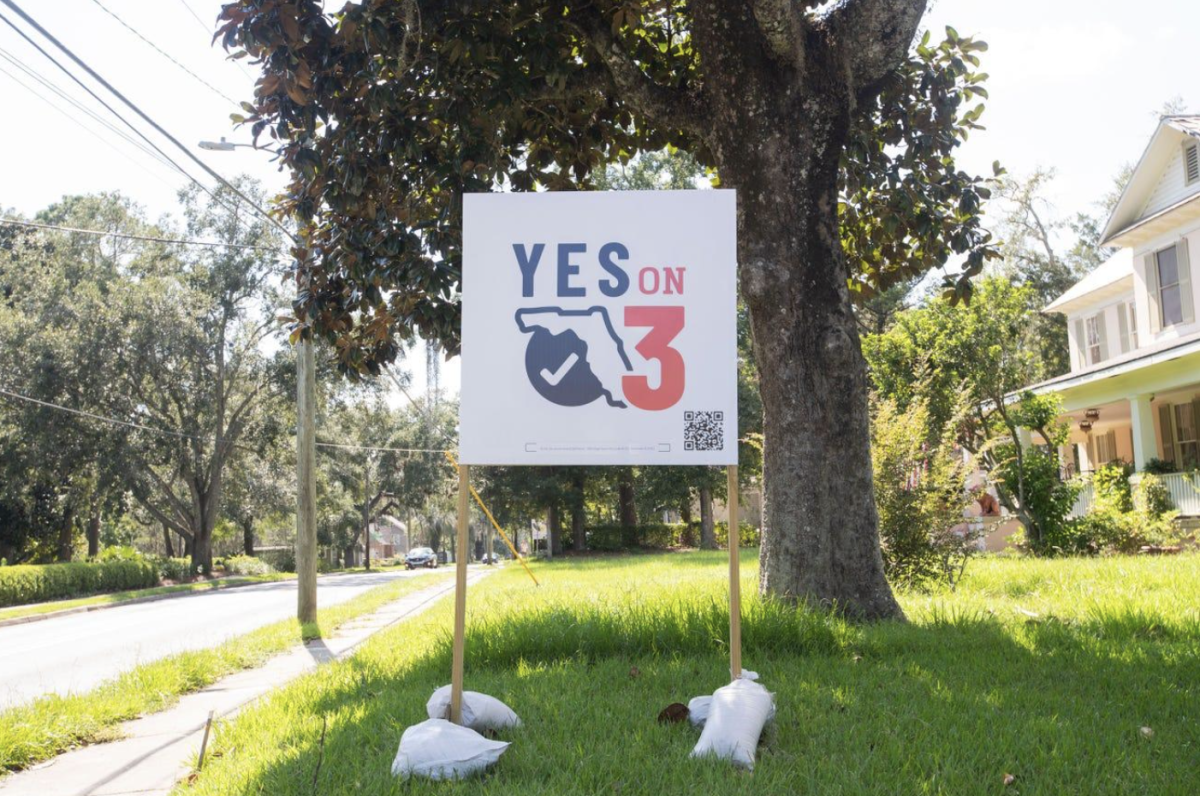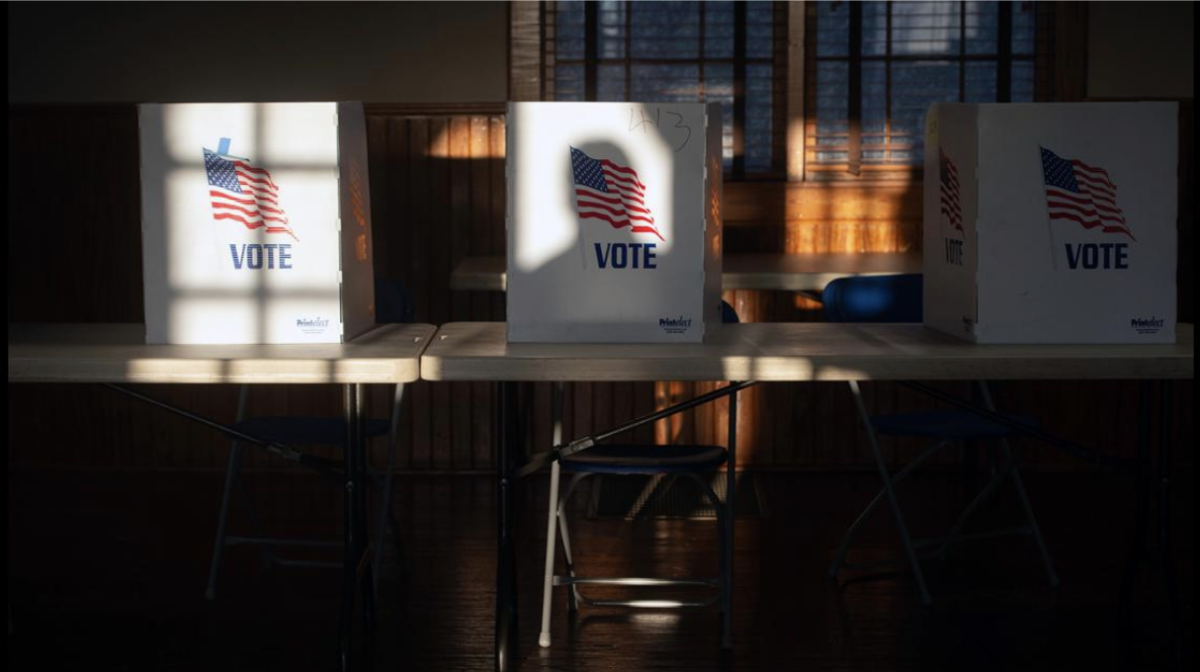It isn’t a warm day by Tallahassee standards, but the Mallory Room in the Senate Office Building is sweltering.
The room is filled with senators, staffers, directors, appointees and everything in between. The expanded agenda for the Senate Appropriations Committee on Ethics and Elections is eight pages long. Pages and pages of confirmations are set to be heard, 127 appointees listed, but those are all unanimously confirmed in a single motion in order to get to the real business for the day: the Board of Trustees appointees at the University of West Florida.
The UWF appointees were last on the agenda. It didn’t matter – with the approval of all prior appointees to numerous schools throughout Florida, all sights were set on UWF. The Voyager has covered the appointees to the board quite closely, including our article on Dr. Scott Yenor. It was only a matter of time until the Ethics and Elections Committee called a meeting, and we had to be vigilant, as policy dictates that the committee must only give 72 hours advance notice before a meeting is held. With the clock winding down and the wheels of the government turning, The Voyager took a trip to our state Capitol to cover our favorite developing story.
DeSantis and His Role
The first five appointees for UWF (Paul Bailey, Chris Young, Ashley Ross, Rebecca Matthews, and Rachel K. Moya) were recommended to be confirmed with little fuss. All faced questions from the committee members, mostly regarding Gov. DeSantis’ comments during a press conference last week on Tuesday, April 15. Some consider his comments during the conference incendiary, specifically those regarding universities. Those comments included stating that universities have become institutions of “political indoctrination,” and that he doesn’t want parents of students who come to universities in Florida to have to worry about “Marxist professors” undoing the values they have instilled in their children. He said that “when we get done with it, the University of West Florida, you will see some big changes there. Trust me.”
Perhaps his most notable of these statements, however, is the following:
“University of West Florida, buckle up. You’re going to see a lot of changes there for the better. I mean how does, like, the most conservative part of the state have one of the most liberal programs in the state? It doesn’t make any sense. So the times are a-changin there too. You’re going to see that.”
The liberal program DeSantis was referencing was UWF’s gender studies program.
These statements were brought up to appointees during the meeting, specifically by Sen. Tina Scott Polsky, D-Boca Raton.
When the first five appointees were confirmed, the attendees of the meeting perked up. There was only one appointee left. The appointee that numerous Save UWF members had shown up for, had signed appearance cards to speak against to stand in solidarity with community members like UWF President Emeritus Judy Bense and former board member and chair, Suzanne Lewis.
On the Stand
Adam Kissel stands before the committee in his wrinkled suit, head high. He speaks about his experience with higher education. He mentions his family, speaking about how his parents have lived in Pinellas County for over 40 years, and how he graduated high school in Florida. Kissel tries to tell the crowd and the gathered senators that he has a connection to Florida, seeming to push aside questions about his separation from the state, living in West Virginia.
Several committee members were not buying it. Sen. Bryan Avila, R-Miami Springs, is the first to ask Kissel a question, asking about his time at the Department of Education and how his experience there could be used to implement ideas and structures at UWF.
Kissel’s answer seems to hold little bite or interest for most – his words about the Board of Governors, taxpayers’ money, and accreditation are not what the assembled want to talk about. Sen. Polsky undoubtedly knows this. She is recognized to speak next, looking Kissel in the eye as she asks:
“I know I struggle to get to Tallahassee from South Florida. How do you get to UWF from West Virginia?”
That question holds a nesting doll of doubts within its phrasing. Many community members are unhappy that people from out of state who have never attended UWF, or lived in the area, have been appointed to the board. It’s a valid question, and it doesn’t trip up Kissel, as he speaks about his flights to Tampa on Silver Airways.
There’s a barrage of other questions from Sen. Polsky. Questions concerning free speech on college campuses, elimination of the Department of Education, and how that could affect UWF, including in regards to research funding and grants. She asked about Kissel’s connection to the Heritage Foundation and his thoughts on Project 2025.
Later questions begin to put nails in the coffin for Kissel.
“You wrote in a tweet just a few weeks ago on March 17 that a lot of school and college administrators could be replaced with AI and the work would be faster and more accurate,” Polsky said. “You said that you’ve had meetings with faculty, you know, obviously you have to work closely with college administrators. How have they taken comments such as this and do you think that fosters a good relationship for you as a trustee of this university?”
“I do think it would be a logical fallacy to think that a general statement made about schools and college administrators which includes 6,000 institutions and many schools, would apply in any particular case to any particular administrator. And as I said to you before, considering that Florida [Department of Government Efficiency] is coming for efficiency, if I were an administrator, I would say ‘I know how to prove my value and I will.’”
After a few more questions, Sen. and committee Chair Don Gaetz, R-Niceville, a northwest Florida resident since 1978, began to drive the point home.
“Less than a year ago, Mr. Kissel, you wrote, and I quote ‘postsecondary education in the U.S. needs the discipline of the market. Putting all’ – your words – ‘all public colleges and universities on a path to privatization is how to get there.’ Were you telling the truth when you wrote that?”
There’s murmurings in the room, a stifled laugh here and there, as attendees glance at each other. Kissel responds with the statement that he considers himself a libertarian and that he thinks the government should be very small. He speaks about how he believes that within 100 years a university could support itself without taxpayer money.
The questioning, akin to a cross-examination, doesn’t stop there. Gaetz asks another.
“Less than a year ago, you wrote ‘The public expects accountability, but academic freedom concerns have historically featured deference. Even the blatant activism among professors.’ And then you said ‘One solution in these circumstances is to stop funding public colleges and universities in the first place, which means to stop having them and instead to privatize them.’ Then you went on to write ‘States can save more than $126 billion per year if they stop subsidizing higher education.’”
After ending his reading, Sen. Gaetz turns his full attention to Kissel.
“Did you plan to wait 100 years to get the $126 billion, or were you speaking in the present tense?”
Kissel nods.
“Again, as a libertarian, we have a lot of ideas that are politically infeasible and we say things that may come true in 100 years,” he says. “Libertarians were at the forefront of many civil rights battles that took decades and I do think that, in the long run, we should be very concerned about the amount of money we pay, especially for universities where – say there’s a college in Georgia with an 8% graduation rate. Should that be a public college? Should we continue to fund that? Probably the answer is no.”
Gaetz sighs and shuffles his papers.
“Thank you, Mr. Kissel. Libertarians aren’t up for the Board of Trustees today. You are. Do you still believe that the best path forward for public education and for higher education is to stop funding public universities?”
“Senator, I don’t believe that,” Kissel responds.
“You wrote it,” says Gaetz. “Were you telling the truth then?”
“I was telling the truth then and now, and again –” Kissel says.
“Have you changed your mind?” Gaetz interjects.
Kissel’s response is that he doesn’t believe the two points are in conflict, and that he hopes there is intellectual diversity on the board. Gaetz continues with his point when Kissel speaks about more resources for universities, citing his own words back to himself.
“Contrary to what you wrote?” Gaetz asked. “More and more resources, as opposed to fewer and fewer and indeed stopping the funding of public universities. So you’ve changed your mind, or you wrote in the present tense or the future tense? How would you explain that?”
The room fell silent.
Like Scott Yenor before him, Kissel’s own words came back to haunt him. Kissel reiterates that he believes the ideas are not in conflict with each other, and the group moves on to appearance cards for people speaking for or against him.
Only a handful were able to speak due to time constraints. Sen. Gaetz did read aloud the cards so that it could be tallied how many were for or against. The final total?
Four people spoke, or waived their right to speak, for Kissel.
Seventeen people spoke, or waived their right to speak, against him. The speakers include President Emeritus Judy Bense and former chair of the UWF Board of Trustees Suzanne Lewis. When the speakers finished, the votes were tallied.
That tally has four senators who voted to confirm Kissel. Five senators voted against his confirmation. On this morning in Senate Room 37, Adam Kissel stood before his judges and was unable to outrun his own words.
The Aftermath
Kissel’s failed confirmation means three seats should soon be open on the board. Rebecca Matthews is the new chair after the resignation of Yenor and Garcia.
Rachel Moya, Rebecca Matthews, Ashley Ross, Chris Young and Paul Bailey will all move to the full Senate for final approval.
The confirmation result did not immediately end Kissel’s time on the board. As of this writing, his profile is still live on the Trustees page of the UWF website.
There is also a scenario under which Kissel can continue to serve. Specifically, Gov. DeSantis could reappoint him.
Editor’s Note: This story was updated to include important context of Adam Kissel’s standing on the board as well as the possibility of his reappointment.

